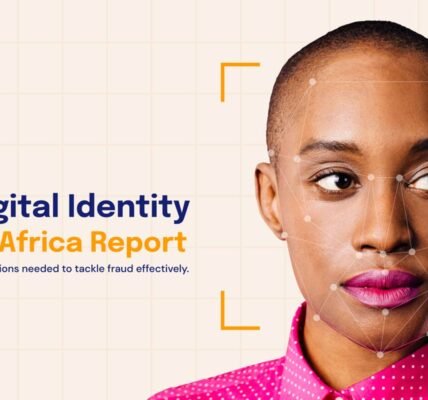 Over the past decade, blockchain-based digital assets, like bitcoin, have evolved into a multibillion-dollar asset class, serving individuals and businesses for various purposes.
Over the past decade, blockchain-based digital assets, like bitcoin, have evolved into a multibillion-dollar asset class, serving individuals and businesses for various purposes.
Initially designed as a peer-to-peer means of payment, bitcoin has seen a significant shift towards being an asset held for investment purposes. This evolution prompted the integration of these blockchain-based assets into the traditional financial services industry, driving the need to develop a regulatory framework.
As the asset class matured, custody methods also evolved, with early adopters applying self-custody to their digital asset holdings because custodial services were not readily available.
However, new business models emerged as the industry developed, including dedicated and hybrid custodians.
The latter is also known as a cryptocurrency or digital asset exchange. In comparison, these digital asset exchanges provide alternatives to self-custody that also serve as a marketplace where blockchain-based digital assets are traded similarly to stock exchanges such as the JSE.
However, it is crucial to understand that these platforms act as custodians and trading venues, unlike traditional stock exchanges, which solely provide a trading environment with independent parties offering custody services.
Digital asset exchanges bear a closer resemblance to commercial banks, where individuals can hold and exchange currencies.
Strict regulations
Nevertheless, unlike these exchanges, commercial banks are subject to strict regulations regarding customer asset segregation, liquidity and capital requirements, and deposit guarantee schemes to protect clients and depositors.
As investor demand for exposure to digital assets through regulated investment options increased, digital asset sector regulations began to evolve. This change reflects a global trend towards more regulated financial environments.
South Africa has followed this shift, moving from a regulation-free zone to a more regulated landscape. Amid this evolution, a growing need emerged for exposure to digital assets via exchange-traded funds (ETFs), which are heavily regulated investment vehicles.
Read: One bitcoin now costs R1-million
While there has yet to be a massive departure from dedicated or hybrid custodians towards regulated ETFs, there has been a discernible uptick in demand for such products, driven primarily by commercial investors in South Africa and various other countries.
Earlier this year, the US Securities and Exchange Commission made an historic decision by granting approval to several bitcoin spot ETFs. While this approval wasn’t the world’s first of its kind, with countries such as Canada, Germany, Brazil and Australia having already launched similar ETFs linked to the spot price of the world’s largest cryptocurrency by market capitalisation, it was undeniably a watershed moment for the asset class.

When considering these bitcoin spot ETFs, one must consider the associated fees, which typically range from 0.25% to 1.5%/year based on the assets under management (AUM). While seemingly in line with similar non-bitcoin ETFs, these fees are relatively high compared to those of digital asset exchanges that act as custodians. These hybrid custodians often charge between 0.3% and 1.5% as a fee or spread for initial transactions without an annual custody fee.
However, it is essential for investors performing this comparison to recognise that the AUM fee plays a crucial role, covering the operational costs necessary to ensure that the fund operates within a regulated environment and facilitates the production of audited financial statements. These financial statements are made publicly available to current and potential investors, setting ETFs apart from other custodians whose financial affairs remain private due to their corporate structure.
One also needs to consider how ETFs handle custody of the underlying assets. They often rely on existing dedicated but also hybrid custodians, like Coinbase, which currently serves as a custodian to 80% of the approved bitcoin spot ETFs in the US.
Whether investing in ETFs or holding assets directly with Coinbase, counterparty risk remains relatively consistent, emphasising the importance of due diligence. We may also witness instances where commercial banks, both in South Africa and globally, introduce hybrid custody solutions into their existing business models to disrupt the existing business models of digital asset exchanges, like the approach taken by UK-based Revolut.
From a South African perspective, holding digital assets through a listed ETF offers possible tax advantages. The South African Revenue Service has not provided comprehensive, authoritative guidance on classifying digital asset disposals as capital or income. Sars, however, has stated that the onus is on the taxpayer to prove that the asset is in fact capital in nature.
Tax
It’s worth noting that blockchain-based digital assets, such as bitcoin, lack the traditional “fruit and tree” principle that typically differentiates between gains, which are capital and income in nature. Therefore, they could potentially fall into the higher taxable rates of income.
There may, however, be a significant advantage to seeking exposure through a regulated vehicle like a bitcoin spot ETF. Section 9C of the South African Income Tax Act will apply to listed securities such as a bitcoin spot ETF but not instances where individuals hold bitcoin on-chain or through a hybrid-custodian such as a digital asset exchange. Consequently, under section 9C, if you hold your equity share (which includes a participatory interest in a portfolio of a collective investment scheme in securities such as an ETF) for a period exceeding three years, it may be deemed capital in nature, subject to circumstantial consideration. This could result in a lower tax rate compared to when it is deemed income in nature.
Read: Bitcoin: now just another dull asset class
The question remains when South African exchanges, like the JSE and the Cape Town Stock Exchange, will introduce bitcoin spot ETFs. In the past decade, many fund managers sought to list these innovative investment vehicles, but both South African platforms exercised caution and held back on approvals.
However, recent global developments, including the emergence of bitcoin spot ETFs in various jurisdictions like the US, signal a shift in the landscape. These developments showcase the increasing acceptance and demand for such investment options. This global trend could compel the JSE and the Cape Town Stock Exchange to consider approving the first bitcoin spot ETFs in South Africa in 2024.
- The author, Wiehann Olivier, is partner, fintech and digital asset lead at Mazars in South Africa



